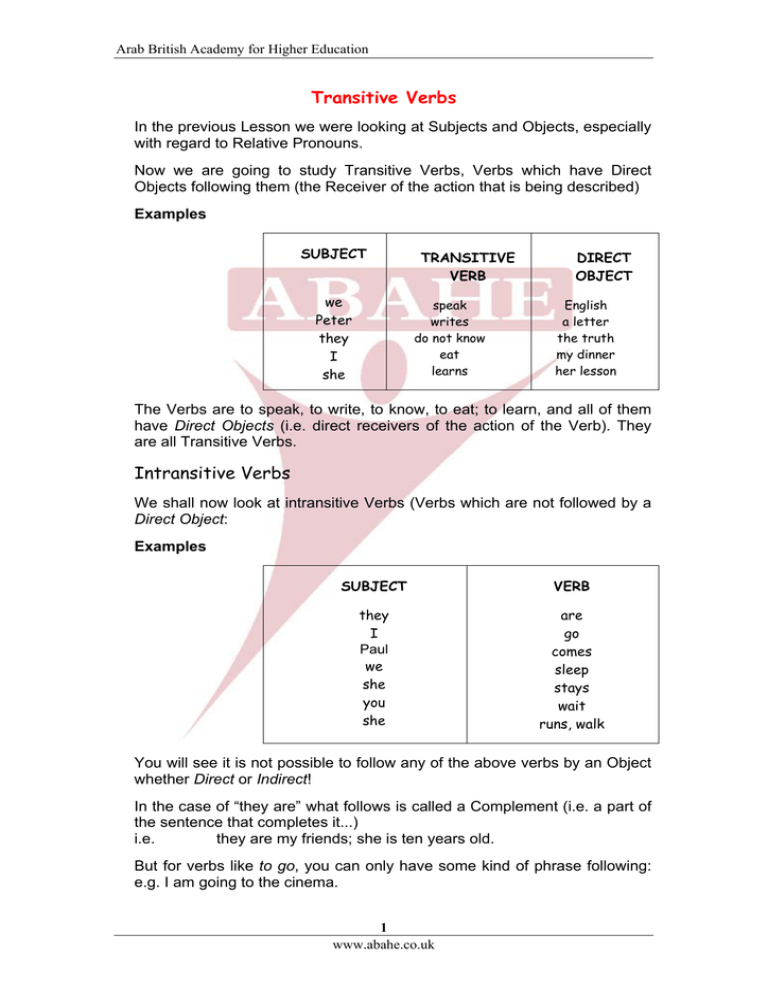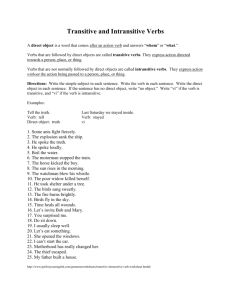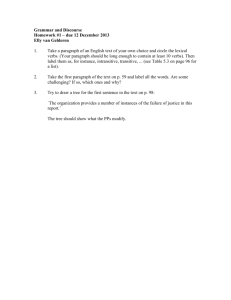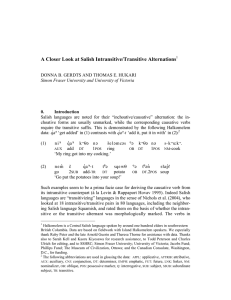
Arab British Academy for Higher Education
Transitive Verbs
In the previous Lesson we were looking at Subjects and Objects, especially
with regard to Relative Pronouns.
Now we are going to study Transitive Verbs, Verbs which have Direct
Objects following them (the Receiver of the action that is being described)
Examples
SUBJECT
we
Peter
they
I
she
TRANSITIVE
VERB
speak
writes
do not know
eat
learns
DIRECT
OBJECT
English
a letter
the truth
my dinner
her lesson
The Verbs are to speak, to write, to know, to eat; to learn, and all of them
have Direct Objects (i.e. direct receivers of the action of the Verb). They
are all Transitive Verbs.
Intransitive Verbs
We shall now look at intransitive Verbs (Verbs which are not followed by a
Direct Object:
Examples
SUBJECT
VERB
they
I
Paul
we
she
you
she
are
go
comes
sleep
stays
wait
runs, walk
You will see it is not possible to follow any of the above verbs by an Object
whether Direct or Indirect!
In the case of “they are” what follows is called a Complement (i.e. a part of
the sentence that completes it...)
i.e.
they are my friends; she is ten years old.
But for verbs like to go, you can only have some kind of phrase following:
e.g. I am going to the cinema.
1
www.abahe.co.uk
Arab British Academy for Higher Education
For more information on this, consult Longman's A-Z of English
Grammar and Usage.
Activity
3
Complete these sentences with an appropriate Transitive or
Intransitive Verb (say which it is):
a) I am ________ to see my friends
b) Elizabeth ________ the book to her teacher
c) Who ____ you? My name is Steven.
d) Last night I did not _________ very well
e) The train _______ late far too often
f) I ______ apples, and eat them as much as possible
g) Has she her letter? I don’t think so!
All Rights Reserved © Arab British Academy for Higher Education
2
www.abahe.co.uk









